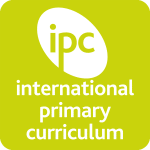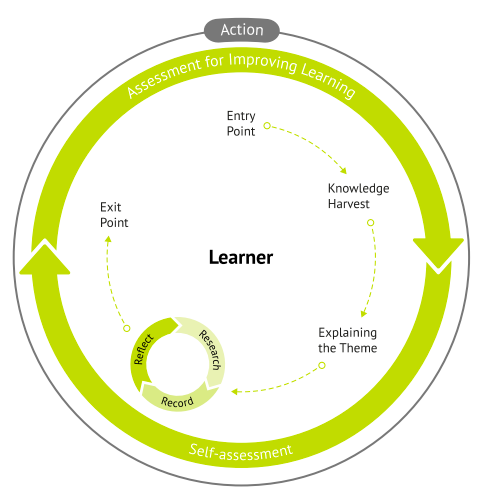What is the IPC?
Video: Introducing the new International Primary Curriculum, featuring some of our teachers at Futuraskolan International School of Stockholm
The International Primary Curriculum (IPC) is a comprehensive, thematic, creative curriculum for 5-11 year olds (Grades 1 – 5), with a clear Process of Learning and specific Learning Goals for Subject, International and Personal learning.
The IPC design focuses on improving learning and is guided by three key questions:
- What kind of world will our children live and work in?
- What kinds of personal qualities and dispositions will help our children to succeed in the world?
- What kinds of learning experiences will our children need to prepare them for the future?
The curriculum contains over 100 thematic Units of Learning. Teachers pick the Units (each lasts a number of weeks) that will interest, engage and excite their children the most, and work well in the individual context of the school. Units incorporate a range of different subjects that are linked, explored and connected through “The Big Idea”. For example:
Unit of Learning:
“Go with the flow: Rivers”
The Big Idea:
“The world’s rivers are our most precious resource. This unit studies the impact of the world’s rivers on people and landscapes in the past, present and future.”
Subjects: Geography, Science, Technology, History, and Society and International.
All units are founded on three sets of clarifying Learning Goals: Subject Learning Goals, Personal Learning Goals and International Learning Goals. IPC Learning Goals differentiate between knowledge (K), skills (S) and understanding (U) and consider how each is planned for, learned, taught, assessed and reported on.
The IPC Assessment for Learning Programme provides teachers’ and children’s rubrics against which the key skills of the IPC can be assessed. Each Unit of Learning follows a stimulating, rigorous structure called the IPC Learning Process. Children don’t just experience the structure and process of the IPC, but understand why they are learning in this way. A set of Units entitled ‘Brainwave’ explores how the brain learns and helps children to understand how they learn best.
Entry Point
The entry point is an activity for children that begins each unit of work and provides an exciting introduction to the work that is to follow. Entry points can last from one hour to a week, depending on the age of the children and the appropriateness of the activity.
Knowledge Harvest
The knowledge harvest takes place in the early stages of each unit and provides an opportunity for children to reveal what they already know about the themes they are studying. This bank of knowledge can then be added to, developed and even challenged by the teacher, throughout the course of the unit.
Explaining The Theme
This activity involves the teacher helping the children to see the ‘big idea’ of the unit of work before embarking on the subject learning.
Big Picture
The big picture provides teachers with subject-based background information to the issues contained within the unit.
Research Activity
Each IPC unit has a research activity and a recording activity. Research activities always
precede the recording activities. During research activities, children use a variety of methods and work in different group sizes to find out a range of information.
Recording Activity
During the recording activities, children interpret the learning they have researched and have the opportunity to demonstrate, share and explain their learning in different ways.
Exit Point
Outer Action Circle
This grey ring around the outside is there to remind and encourage students that action can be taken at any point of the learning journey. Students recognize that they can be agents of change in the school, local, and global communities in which they belong.
The exit point has two main purposes. First, to help children pull together their learning from the unit and second, to celebrate the learning that has taken place.
The design of the IPC offers a holistic approach to learning through three types of learning goals: subject, personal, and international. Moreover, it promotes the development of knowledge, skills, and understanding, which are acquired differently, and are therefore planned for, taught, and assessed differently.
- Knowledge – ‘Know that’; knowledge is seen as factual information that can be memorised and is assessed through tests, exams, quizzes, posters, exercises for which points/letter grades are awarded.
- Skills – ‘Be able to’; skills are learned practically and are assessed with rubrics that include three levels: Beginning, Developing, Mastering.
- Understanding – ‘Develop an understanding that’; grasping of conceptual ideas, making personal meaning; understanding is expressed through journaling, discussions, exit points, etc.
The IPC personal goals refer to those individual qualities we believe are essential in the 21st century. It is our goal to help our students to be adaptable, communicators, collaborators, empathetic, thinkers, resilient, respectful, and ethical.
Finally, through the international goals, the IMYC fosters international mindedness, which is being interested in other cultures while welcoming diversity, collaboration, and other perspectives. It also encourages global competence, which is being aware of, engaged in, or taking action on world issues as progressive, energetic, and respectful individuals.




